First-year students dive into research
FYRE program offers faculty mentorship and hands-on learning projects
Featured Stories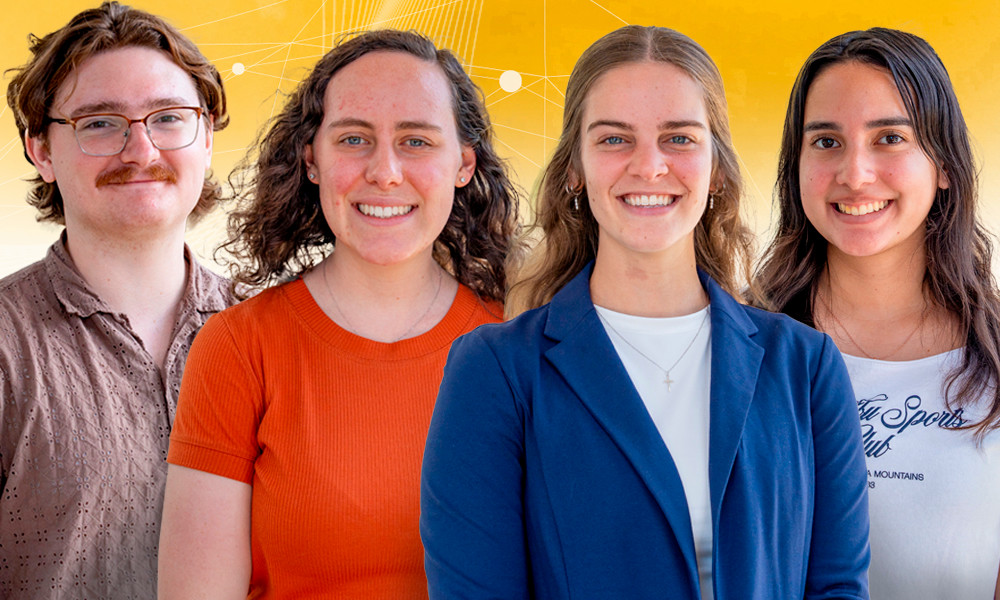
SUMMARY: Each year, dozens of first-year students are paired with faculty mentors to build their research skills and connect their studies to real-world challenges. Meet four graduates of this high-impact program.
This article and other exclusive content is available in the Madison app. ![]()
The First-Year and Transfer Student Research Experience program introduces high-achieving students to the world of academic research. FYRE, which started as the First-Year Research Experience in 2022, encourages Dukes to build research skills and connect their coursework to real-world challenges early in their college careers through faculty mentorship and hands-on learning projects.
In the 2024-25 academic year, 75 students from diverse academic backgrounds benefited from the FYRE program. Madison asked four graduates of the program to discuss how it shaped their early college experiences and helped them grow as researchers, learners and future professionals.
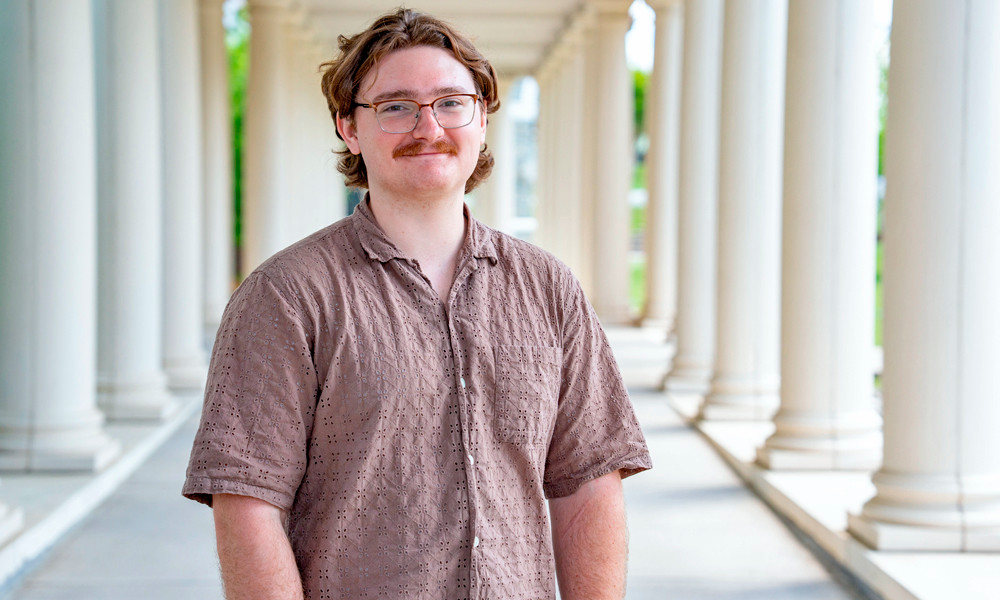 |
Benjamin Woollven (’25), a Physics major, was drawn to the FYRE program because of his Mathematics minor that required undergraduate research. It was an opportunity to tackle college-level research early on.
Woollven was paired with Dr. Klebert Feitosa, an associate professor in the Department of Physics and Astronomy. “I picked Dr. Feitosa to do research with, because his work seemed the most approachable,” Woollven shared. “It was through him that I heard about the FYRE program and was recommended to apply for it.”
Woollven’s project involved studying the coarsening of 2D aqueous foams in negative Gaussian curvatures. “The negative Gaussian curvature part just means that the foams were made inside a clear, hollow, 3D-printed section of a shape known as a pseudosphere,” he explained.
“The growth of flat 2D foams is determined by a well-established equation called the Von-Neumann law,” Woollven continued, “which essentially states that individual bubbles in a foam will shrink if they have five or fewer sides, grow if they have seven or more sides, and remain stable if they have six sides.”
Woollven did not pick the topic; Feitosa assigned it to him when he joined the lab. But this did not stop him from diving headfirst into the research.
Woollven speaks highly of FYRE and attests to how it has guided his undergraduate career. “My experience as a student researcher entirely changed my career goals. I went from starting my project and just wanting to get my credits to pursuing it throughout my entire undergraduate career and now into graduate school. I have had opportunities to work in different labs, projects and universities, all of which have only reinforced my goal of becoming a professional scientist.”
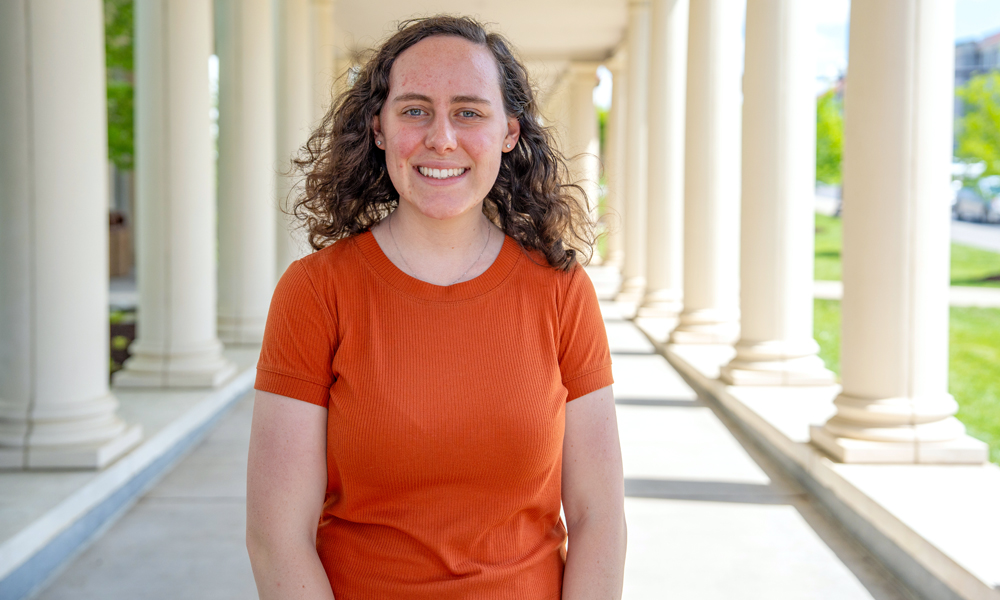 |
Grace Chamberlain, a junior studying Physics and minoring in Mathematics, Computational Analytics and Honors Interdisciplinary Studies, discovered the FYRE program through the Honors College. “I knew that involvement in research would be one of the best ways to learn about subdisciplines in physics and to apply what I was learning in my class,” she said.
Dr. Kendra Letchworth-Weaver, an associate professor within the physics department, was paired with Chamberlain for the project. “For the FYRE program, my research project involved modeling the structure and energetics of materials called high entropy oxides, which have applications in lithium-ion batteries and thermoelectric materials,” Chamberlain shared. She achieved this by using high-performance computing resources, Python programming and scientific software called JDFTx.
“I selected this research project because I enjoyed learning Python in my Foundations of Physics course and wanted to improve my coding skills,” Chamberlain said. “Additionally, the research project description included topics and skills that were unfamiliar to me, so I thought that this project would be intellectually challenging and therefore rewarding.”
Her participation in FYRE fostered a love for research, and she looks to pursue it throughout her career. “In continuing the project I began with the FYRE program, I have had multiple opportunities to present my research at professional conferences. I gained a mentor who has supported me throughout my research and undergraduate career. I improved my abilities to problem-solve and overcome challenges, and I have learned how to determine new research directions and investigate these questions more independently.”
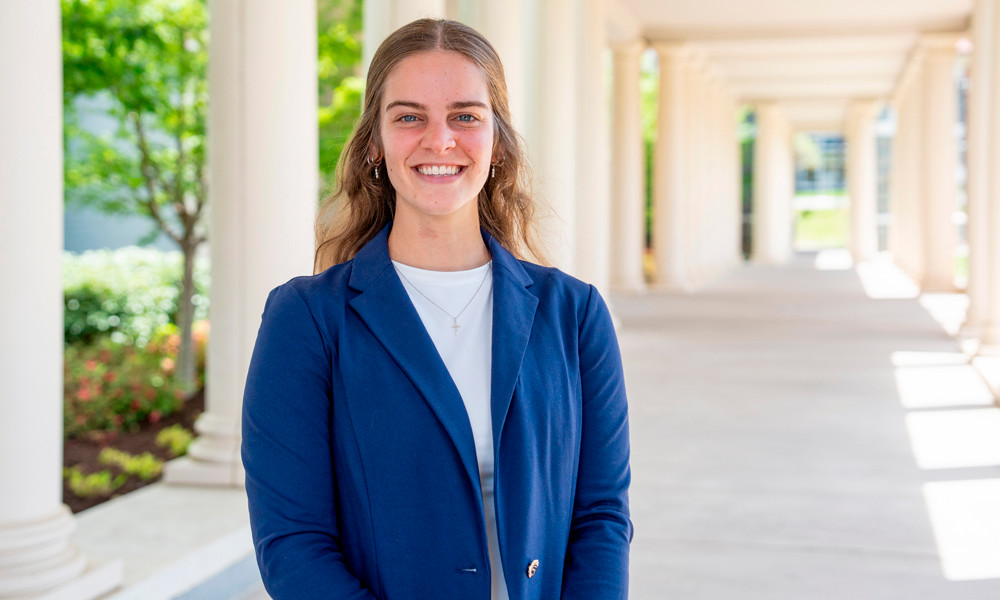 |
Alida Schreuders (’25), an International Affairs major with minors in Modern European Studies, Political Science and Spanish, first learned about FYRE through Dr. John Scherpereel, associate professor of political science, who invited her to pursue research with him.
“He is a great instructor, and so I was confident, not in my own abilities but in his ability to teach me,” Schreuders said. “I started learning. It’s not like I had this pre-determined love of research but more of an introduction to it through the FYRE program.”
Her research with Scherpereel examined power, language and leadership, with a focus on the European Union. “We’ve used primarily text and language as our data,” she said. Oxford University Press published their research, and the two have built a website to make the data accessible and user-friendly.
As Schreuders continued her research, her experience evolved from an academic task to a personal passion. Reflecting on how her perspective shifted over time, she said she eventually decided to fully commit to the project. “So, eventually, it did become a choice of mine to pursue it. And that was because I found a lot of value in the research and in the instruction that I was being given.”
Schreuders emphasized that one of the most valuable aspects of being in FYRE is the opportunity to learn from faculty mentors. “Being at JMU, the FYRE program gives you a connection to a professor, and that is an awesome thing to do: To talk with your professors, interact with them and learn about their research, it is very valuable.”
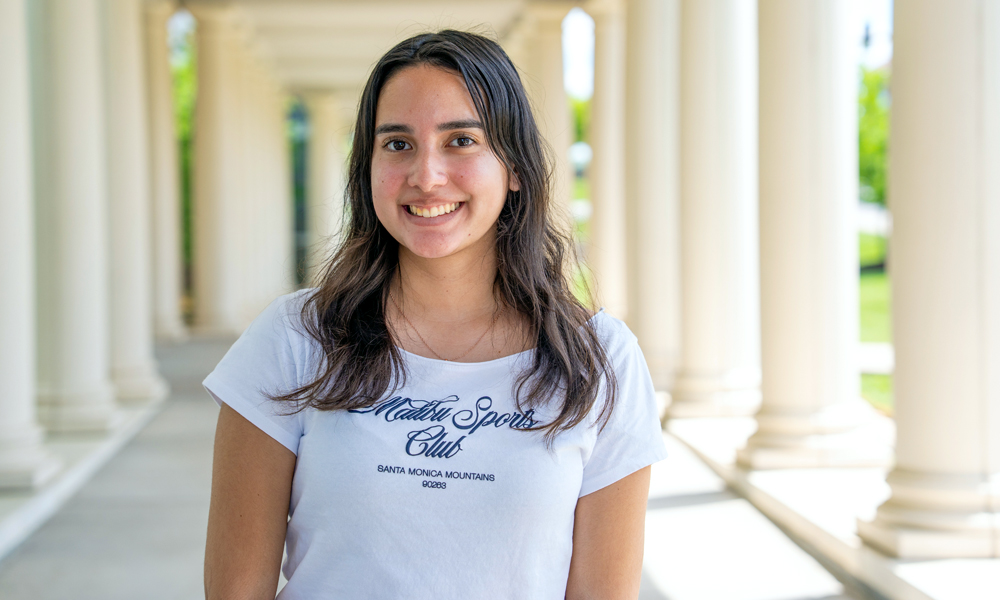 |
Francesca Corrales, a junior Health Sciences major with a minor in Pre-Medicine, recalled receiving an email about FYRE that sparked her curiosity. “After reading through it, I knew it was a great idea to apply, especially since it seemed like a good introduction to research. In my field, research is needed, and I couldn’t let an opportunity like that pass.”
Corrales was paired with Dr. Lisa Porter, an associate professor within the Department of Sociology and Anthropology. Corrales’s research employed a qualitative design, using semi-structured interviews guided by a set of pre-developed questions to explore the experiences of parents who homeschooled their children, searching for motives and trends. “I picked this project because homeschooling had sounded interesting to me,” Corrales shared. “It felt especially relevant given recent shifts in education after the pandemic, and I wanted to research how these changes are affecting real families and communities.”
Inspired by the research experience she gained through FYRE, Corrales is now pursuing a career in medicine. “It showed me the value of understanding people’s unique circumstances, something that’s essential in medicine,” she said. “This experience confirmed that I want to become a physician who not only provides care but also contributes to broader conversations about well-being and equity. As I pursue a career in medicine, this research has strengthened my ability to recognize how external factors shape people’s health and life decisions, helping me become a more empathetic and informed future physician.”
Corrales believes FYRE is an ideal opportunity for first-year and transfer students seeking hands-on research experience within a supportive community. “It helped me build relationships with faculty mentors, develop critical-thinking and communication skills, and gain confidence in conducting real research,” she said.
For Corrales, one of the most valuable parts of the program is how it helps students see the broader picture. “FYRE doesn’t just teach you about research; it shows you how your ideas can contribute to real-world conversations. … It’s a great way to discover your passions and connect your academic work to meaningful impact. It’s also a great opportunity to make meaningful connections with the faculty who can create openings to bigger projects.”
Through FYRE, students gain early exposure to research skills, which sparks a deeper sense of purpose in their academic journeys and professional careers. Whether by building confidence, strengthening connections with faculty or learning their work can make a difference, students gain the tools and support to ask meaningful questions, which helps them grow as scholars and changemakers.
